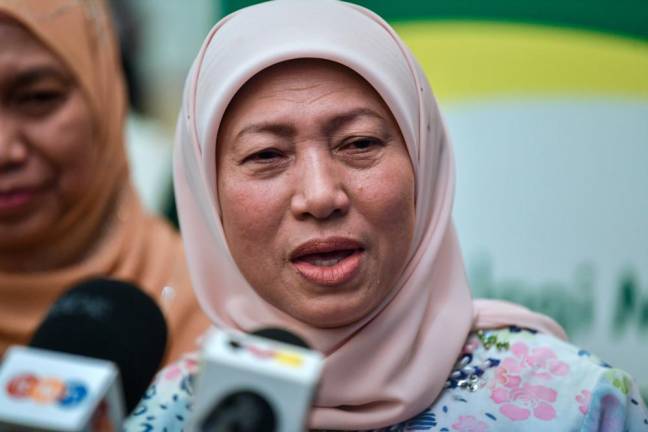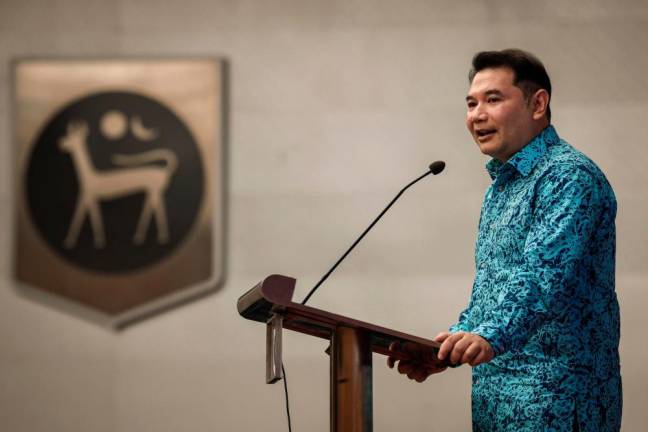IT was two decades ago that the leaders of the world agreed to a grandiose road map to uplift the status of women as part of achieving gender equality. The deliberations of a conference back in 1995 resulted in the Beijing Declaration and Platform for Action, an agenda for change across 12 critical areas to realise the human rights of women and girls, whose continued relevance cannot be overstated today.
The Platform imagined a world in which every woman and girl can exercise her freedom and realise her rights, such as to live free from violence, attend school, participate in decisions and earn equal pay for equal work and of course, the right to own her body.
A quarter of a century later, no country is even close to fully delivering on the commitments of the Platform, according to a major stock-taking United Nations Women report. In this context, reproductive health is a human rights issue and it has not received the attention it deserves, and it has been dealt with unjustly in many countries. Instead of moving forward, many countries have regressed, obliterating the untiring advocacy work by women’s groups.
It is a mockery of the highest order when we watch in horror even developed nations deviate and relapse steeply with new laws that further stifle women’s freedom to exist and live according to their terms.
A recent event in the United States has put decades of work by women’s groups into a complete quandary. A new law went into effect in Texas that bans abortions after about six weeks of pregnancy.
The law allows private citizens to sue abortion providers and anyone else who helps a woman obtain an abortion, including those who give a woman a ride to a clinic or provide financial assistance to obtain an abortion.
Private citizens bringing these suits do not need to show any connection to those they are suing. The law makes no exceptions for cases involving rape or incest. Here is why the law is one of the strictest abortion bans in the country.
Young women and girls have taken to internet activism to show their disgust and protest against this law, which was supported mainly by the Republicans, a derisive and highly condemnable move by irresponsible law makers.
In retaliation, the Biden administration has sued Texas just days after this Bill was approved, over the state’s extreme abortion law, which amounts to a near total ban on abortion, calling the law “clearly unconstitutional”.
Vice-President Kamala Harris said the right of women to make their own choices on reproductive rights and decisions about “their own bodies” was “not negotiable”.
Malaysia has a less restrictive law on abortion, where the law permits abortions to be carried out if the pregnancy poses a risk to the life of the pregnant woman or is injurious to the physical and/or the mental health of the pregnant woman. However, access to abortion services remains limited.
The law here permits termination of pregnancy to save a woman’s life, and to preserve her physical and mental health. However, the information on abortions is still obscure and the average people may not be aware of the restrictions and the exclusions. This has led to girls and young women who unwittingly get into unwanted pregnancy seeking help from unsafe sources. Regular clinics and general practitioners are known to freely offer their services to helpless and gullible victims.
The public health sector provides reproductive health services to all, but contraceptive services are only provided to married women and this is a major problem in our country, where unwanted pregnancies among teenagers are high.
A reproductive rights group in Malaysia has taken this up with the Health Ministry to provide abortion services to reduce baby dumping and infanticide, amid the lack of access to safe abortions. It needs more than just one ministry to act on this but as we know, our law makers are busier than ever, and they would not want to dip their hand into something as delicate as this.
It is not rocket science to make out that restrictive abortion laws violate women’s rights, including the right to life, health, equality, privacy, and to live free from discrimination.
To end this piece on a positive note, Mexico’s Supreme Court recently ruled that criminal penalties for terminating pregnancies are unconstitutional. The ruling prevents women from being prosecuted for getting an abortion.
The decision could pave the way for the decriminalisation of abortions across the country and let us hope other countries take a leaf out of this latest development, and give women the right to own their body.
Comments: letters@thesundaily.com










